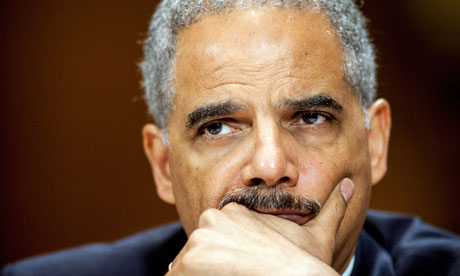
President Obama has run one of the most secretive administrations in history. His commitment to a free press and free speech in the digital age is, at best, limited. Yet, Mitt Romney's record tells you that he'd make Obama look like a paragon of openness.
Let's start with Obama, whose performance has been just north of abysmal on these matters. Let's give him credit for one major initiative that has been on the positive side: the administration's "Open Government Initiative", which was a polar opposite to the Bush era's default condition of secrecy. While it hasn't remotely kept his 2009 promise of "creating an unprecedented level of openness in government", it has led to the public availability of more data than we've seen in the past. And that data has been used in any number of ways by any number of people and organizations to shine some light on our society and its government.
But the Sunlight Foundation, which focuses exclusively on opening data for public use, has made clear how many departments and agencies have blown off the White House directives, and how there's been no penalty for their obfuscations. At best, as the foundation puts it, the administration's record is mixed.
On secrecy in other respects, the Obama crowd has not been significantly different from the George W Bush administration, as Glenn Greenwald has described. The White House and agencies have taken an even more expansive view of their right to withhold even the most basic information about what government is doing in our names and with our money. Two examples among many: American drones, which are killing people in a variety of undeclared war zones, don't officially exist. And the Obama justice department has made the breathtakingly Orwellian argument that the public can't go to court over government's illegal, pervasive electronic surveillance because it's a state secret.
When pressed hard on free speech and a free press, the Obama administration takes a dim view of both. The logic of its attacks on WikiLeaks – public and secret – could be used against any major journalism organization that solicits and publishes leaked information. The Obama government has prosecuted more leakers, or whistleblowers, than all the previous ones combined, and has spied on journalists in the process.
Free speech in a digital era is about data networks. Here, too, the incumbent has, at best, a mixed record. The White House has talked a reasonably good game, as well, on keeping the internet open and not letting the telecom industry, Hollywood and other corporate interests lock it down to serve their own narrow purposes. In almost every case that matters, however, the administration's actions don't support those words.
The Federal Communications Commission (FCC), with its Democratic majority, adopted rules promoting network neutrality – the idea that the broadband duopoly of cable and phone companies should not be allowed to favor one kind of data traffic over another, with a few exceptions aimed at network management. But the FCC's rules for mobile data, which is increasingly the way people use the internet, allow the carriers to manipulate and limit traffic pretty much at will, and the regulations for wired lines – which the industry has challenged in any case – are full of loopholes.
Meanwhile, the Obama government has almost always sided with the "copyright cartel" in its wish to take control of the internet. There's been one notable exception: the administration's belated, but welcome refusal to support the odious Sopa (Stop Online Privacy Act) earlier this year. But the government has repeatedly acted in ways that threaten free speech online, including its theft – this is the right word – of any number of domains it has decided to take down from the internet (after "intellectual property" holders complain and with no input from the alleged offenders).
One was a hip-hop blog that got its domain back a year after its theft by the government, with not even a pretense of an apology. And the administration has supported – in many cases, as the principal author – secretive treaty negotiations that would create Sopa-like, and worse, laws via backdoor methods.
At the same time, the Obama justice department has repeatedly made clear that it wants ever more surveillance powers. This what every government does, no matter who runs it, but Obama once claimed to be in favor of civil liberties – and then broke almost every promise in this arena (with the one exception of gay rights).
All of this – and there's much more – would make someone who believes in open government, free speech and an open internet long for a better candidate. Unfortunately, the other major-party candidate this year would almost certainly be worse in every way.
Romney's penchant for secrecy goes beyond his refusal to disclose his own finances – thereby denying voters a chance to see how the man who claims his business record would make him a good president has actually behaved with his money. He and his associates hid or disposed of documents that would shed light on his two other major professional achievements: his Olympics leadership in Utah and his administration as governor of Massachusetts.
Romney is against network neutrality – in favor of an internet that big companies control for their own purposes. His party wants to wage a war on pornography, even though that would be a proxy war on free speech itself. And he's even more hostile to civil liberties – except the right create home arsenals of firearms – than Obama, which is saying something.
I wish the press had paid more attention to these matters in the past few years, or at least during the campaign, but in an era when journalists have abandoned even the pretense of doing their jobs, that's a forlorn hope. I'll have much more to say on the performance of the media in my next column.

